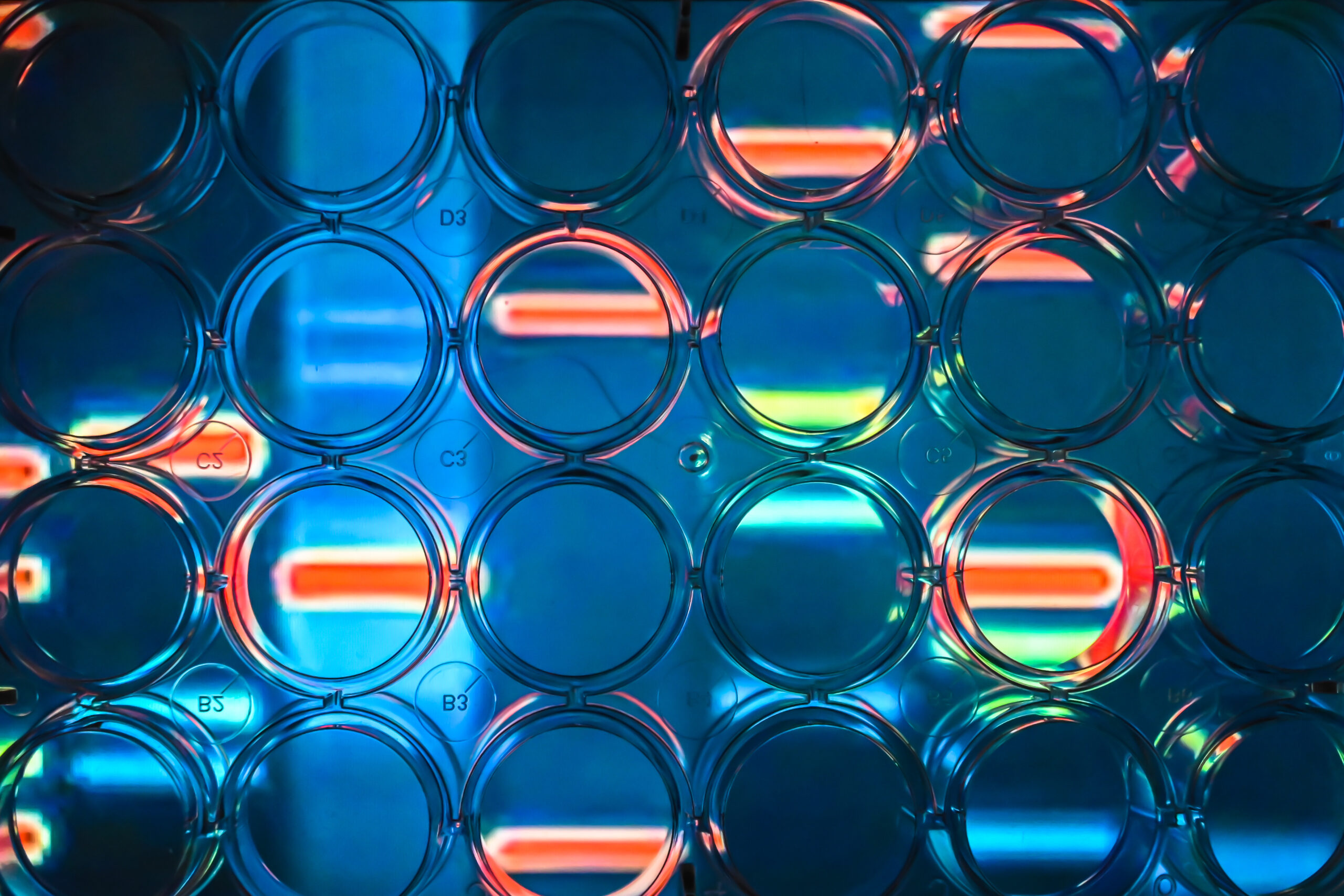
Texas A&M Institute for Genome Sciences & Society
Our facility is dedicated to driving innovation and collaboration, empowering researchers to explore the fundamental mechanisms of life, health, and disease. Our staff are experienced in nearly any genomics, multi-omics, single cell, bioinformatics and pre-clinical technology needed for modern research. With a comprehensive suite of advanced genomic and phenotyping tools, we support breakthroughs in personalized medicine, precision agriculture, evolutionary biology, and other fields that rely on deep genomic insights and phenotypic characterization. As a trusted partner, we offer tailored solutions to meet the unique needs of our clients. Our team of experts is committed to providing exceptional support, ensuring access to cutting-edge technologies, robust data analysis, and comprehensive training.
Our Cores
TIGSS consists of three core service areas, designed to support your research and provide access to state-of-the-art instrumentation, all managed by our expert research staff. Each area has a fee-for-service core that can be used independently or in combination with another of our cores. To better assist our users, TIGSS requires a consultation with our staff for the core(s) you intend to use. Below is an overview of the services offered to help guide your decision. If using multiple cores, only one consultation submission form is necessary.
We employ small animal models to identify the most effective assays for quantifying phenotypic traits and behaviors. Additionally, we offer access to the Collaborative Cross, a unique mouse genetic reference population, which facilitates research into the genetic underpinnings of health, disease, and environmental responses.
We provide a comprehensive range of services, including sample preparation, library preparation, and sequencing, available for both small and large-scale projects. In addition, we offer a collaborative workspace equipped with advanced tools, allowing researchers to access a multitude of equipment that can accelerate research and enhance productivity.
We provide a wide-array of services that include start-to-finish sequencing data analysis to custom pipeline and software development. Our bioinformaticians have decades of experience with backgrounds in metagenomics, differential gene expression, single cell, epigenetics, spatial analyses, cancer biology, plant biochemistry, protein structure prediction, comparative genomics, and much more.

aDVENTITIOUS Agent Testing
Adventitious Agent (AA) testing is the technique used to assay for contaminating agents (e.g., bacteria, viruses, fungi) that are unintentionally introduced during the manufacturing of biotherapeutics and vaccines. While most agents are benign, some can be harmful and even deadly. At TIGSS, we use Next-generation sequencing (NGS) to multiplex multiple samples for a single sequencing run, accommodating up to 600+ samples at a time. An NGS-based approach can identify novel adventitious agents, where traditional methods have historically failed.
Schedule a Drop off
Our institute operates during regular business hours, Monday through Friday from 8 AM to 5 PM, and is closed on TAMU holidays. However, we request that you coordinate a time with one of our staff members to drop off your samples as we can be in meetings, seminars, and other events. Though these situations are occasional, scheduling a sample drop off time allows us to best serve you and your research needs.
Let us know how we’re doing
We value your thoughts and opinions! Your feedback helps us continue to improve and provide the best service possible. Whether it’s a suggestion, a compliment, or constructive criticism, we appreciate you taking the time to share your experience. Your input makes a difference, and we’re grateful for your support!
News
Platform Deep Dive: Revvity Cell Counting & Analysis
August 6, 2025, from 12 – 2 PM in REYN 160Join us for an interactive session showcasing our automated cell counters, image cytometry systems, and specialized reagents. Together, they provide fast, reliable and efficient ways to assess cell health and viability, immunophenotyping, and a range of other cell-based assays. Our Cellometer™, Cellaca™, and Celigo™ systems are trusted by labs throughout the industry for precise, reproducible results via fluorescent imaging. Lunch will be provided.
Fall Semester TIGSS Lunch and Learns
All seminars will be held in REYN 160 from 12PM-1PM; RSVPs will go out the month of the seminarSeptember 19 (Illumina)
October 10 (10x Genomics)
November 14 (Watchmaker)
December 10 (Akoya)
Winners of the PacBio Sequencing Grant
During the April Lunch and Learn seminar, PacBio announced the launch of the PacBio SMRT Grant opportunity. We are pleased to share that the results were released last week.
Congratulations to the award recipients!
Grand Prize Winner:
Ahmed Darwish – recipient of one Revio SMRT Cell and a complete library prep kit.
Second Place Awardees (20% discount on consumables):
Zach Adelman
Samikkannu Thangavel
Ahmed Alarabi
Sam Stroupe
Roly Malaker
Well done to all of you!
To ensure timely access to your awarded items, we ask all winners to contact Jun Fan at genome_core@tamu.edu at your earliest convenience. PacBio requires that all associated consumables be purchased by the end of August.
Let’s make sure we take full advantage of this opportunity.
Visium HD 3′ Gene Expression
10x Genomics has just launched Visium HD 3′ Gene Expression, now available at TIGSS. This is the latest advancement in spatial transcriptomics, offering 2μm resolution for subcellular spatial mapping.
Key features include:
Full tissue coverage – no barcoded spot grid limitations
Whole transcriptome profiling – poly-A capture, ideal for non-model species
Fresh frozen compatibility – validated on tissue from plants, birds, fish, and mammals
10x is currently running pilot projects using this new reagent, with availability through August. They will be on campus on July 7 to provide additional information and support.
One-Stop scRNA-seq Sequencing and Analysis
TPPC, MGC, and TBC have teamed up to provide a comprehensive scRNA-seq sequencing and analysis service on the 10x Genomics platform. This collaboration allows for the identification of cell population states and accelerates research at an unprecedented pace. Contact us today to schedule histological preparation, library preparation, sequencing, and data analysis.
TPPC Inhalation Chamber Completion
The TSE whole-body inhalation chamber offers an ideal platform for simulating human exposure to air pollutants, from acute toxicity to long-term exposure across various developmental stages. This system has significant potential for research on exposure to a wide range of toxicants, including gases such as 1,3-butadiene, ozone, chlorine, phosgene, sulfur dioxide, hydrogen sulfide, nitrogen dioxide, and ammonia. It is also suitable for studying volatile organic compounds (VOCs) like benzene, chloroform, formaldehyde, d-Limonene, toluene, acetone, ethanol (ethyl alcohol), 2-propanol (isopropyl alcohol), and hexanal.
By adding an aerosol generator to this state-of-the-art system, its capabilities will be greatly enhanced, making the TAMU toxicology community even more competitive for substantial new funding. The aerosol function will allow for the use of a broad range of environmental toxicants, including, but not limited to, ultrafine particulate matter (UPM), diesel exhaust, chlorinated compounds, metals (lead, zinc, manganese), pesticides, and per- and polyfluoroalkyl substances (PFAS).



